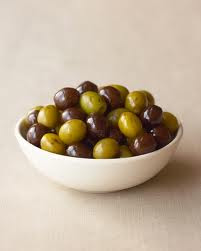 Chocolate cake, apple pie, ice cream, banana pudding, peach cobbler. . . what's your favorite dessert? For most of my adult life dessert has been a special occasion thing, not a course at every dinner. So when I was recently dragged into a conversation between a 7-year-old and her mom about the merits of daily dessert, I sorely disappointed the young one who was hoping to find an ally in this ongoing debate.
Chocolate cake, apple pie, ice cream, banana pudding, peach cobbler. . . what's your favorite dessert? For most of my adult life dessert has been a special occasion thing, not a course at every dinner. So when I was recently dragged into a conversation between a 7-year-old and her mom about the merits of daily dessert, I sorely disappointed the young one who was hoping to find an ally in this ongoing debate.I know a lot of people who are giving up chocolate or sweets or dessert for 40 days. Some of them are painfully aware of the sacrifice. Some are taking advantage of the Sunday loophole and eating the forsworn item only on Sundays. A few probably don't actually miss it but can at least say they kept the fast when Easter rolls around.
So what place does the sweet stuff occupy in your life? In your child's life? Do you threaten to take away dessert if a child won't eat his peas? Do you bribe her to eat her peas with the promise of a treat? What would happen to your meals if sugar was suddenly rationed as it was during World War II? Given all the passion devoted to condemning Mayor Bloomberg for his position on banning the 32-ounce soda option, I'm guessing there would be a lot of serious withdrawal pain.
We who live in American abundance take the availability of sweets for granted and so do not live with them mindfully. As a result, we have a lot of unintended negative consequences: obesity, mixed messages, diabetes, insensitive palettes, and lack of appreciation for the more natural flavors of food. I don't pretend to know what your family should do about sweets. There are so many factors to consider: what your family traditions are, what your family likes, how strong your teeth are :), and how much you like to bake together. I definitely think that there is a place for sweet stuff in every life, if it brings you pleasure.
Like all good things, sweet stuff like honey, sugar, chocolate, and sweet potatoes come from God; they are freely given, and meant to be enjoyed. Like the great gift of love the Father gave us in Jesus, we don't have to earn it; it is given with no strings attached. As I consider the great gift of Jesus in these Lenten days, I cannot escape the immense wonder of such a love as this. The more I contemplate it, the more I appreciate the completeness of the gift, and the love of the giver. I suspect that the gift of sweets would likewise be enhanced by deliberately savoring it; so perhaps the occasional sugar fast, or saving dessert for special occasions would give us greater enjoyment of the treat, and also of the other flavors of our lives. If you love the sweet stuff, give thanks! All acts of gratitude and mindfulness draw us closer to God.


